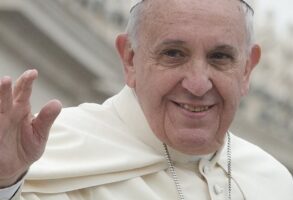
Published February 28, 2019
Last week’s summit in Rome did not address the problem of clergy harassing and abusing adults. It did not address the issue, which Pope Francis has acknowledged, of gay subcultures among the clergy. It did not say much about the virtue of chastity. What the summit in Rome did focus on was protecting minors from sexual abuse by members of the clergy: the most glaring and widely acknowledged facet of the current crisis and the primary source of the Church’s loss of credibility with the faithful. Which is to say, the Rome summit was a start.
There is, of course, very good reason to distinguish, both morally and legally, between the abuse of a minor and the abuse of an adult. And the fact is that the Church in the United States is (hard though it may be to believe) ahead of the global curve when it comes to treating the sexual abuse of children as the grave matter it is. But it is also the case – and the last eight months should have made this perfectly clear – that when the Church says it has “zero tolerance” for the abuse of minors without the stomach for rooting out or addressing the abuse of those who just happen to be past the age of majority, the result is a credibility gap.
When Theodore McCarrick was accused last summer of having abused a seventeen-year-old boy – the first accusation against him involving a minor – the Church acted swiftly. But of course, McCarrick had been accused for years of molesting “adult” seminarians – two dioceses paid out settlements – and the repercussions for McCarrick were mild and ineffectual. He was even for a while allowed to live in a seminary.
Which brings us to another cause of the credibility gap: The Church’s reluctance to address the fact that the vast majority of those abused, at least in the United States, have been male. After 2002 the “gay priests question” became an ecclesiastical third rail. Surely no bishop wants to be accused of conducting a witch-hunt. And by many accounts, there are a significant number of Catholic priests today – and presumably at least some bishops – who experience same-sex attraction.
Meanwhile, Catholics who express concern about a “gay lobby” in the Church are often dismissed as homophobic ideologues for suggesting that clerical sexual abuse might have something to do with disordered sexual desires among clergy. A 2011 John Jay report, which concluded there was no causal relationship between homosexuality and the abuse of minors, seemed to put a lid on things. For a time.
Then came McCarrick, and the Pennsylvania grand jury report, and a summer of disturbing stories of abuse and homosexual subcultures in seminaries in Newark, Boston, Philadelphia, and Lincoln. The matter is suddenly not so settled anymore. But now, it’s not just the usual “conservative” voices calling for the Church to look more closely at the connection between homosexual clergy and the abuse crisis.
Last July, the Catholic journalist Robert Mickens wrote in The Washington Post, “[T]here is no denying that homosexuality is a key component to the clergy sex abuse (and now sexual harassment) crisis. With such a high percentage of priests with a homosexual orientation, this should not be surprising.” Mickens wasn’t defending the Church’s prohibition on admitting men with deep-seated homosexual tendencies to the priesthood. Mickens was arguing the opposite: that the Church has aggravated the abuse crisis by driving priests and seminarians deeper into the closet.
More recently, a Dutch group called the “Working Group of Catholic Gay Pastors” published an open letter to Pope Francis in which they wrote, “We believe that the current major crisis with respect to [the sexual abuse of children and minors] is primarily the result of the disapproval, suppression, denial and the poor integration of sexuality, and especially homosexuality, on the part of many individual priests and within our Church as a whole.”
Earlier this month, The New York Times ran a lengthy piece under the heading: “‘It Is Not a Closet. It Is a Cage.’ Gay Catholic Priests Speak Out.” Like Mickens and the Dutch priests’ letter, the Times piece insists there is no causal connection between homosexual tendencies and the abuse of children. But like the others, the Times piece also concedes that there are many homosexual priests, that this has in some way contributed to the current crisis, and that the solution is not to keep gay men out of the priesthood or in the closet, but to allow them to live their lives “freely, openly, and honestly.”
[T]hey find ways to encourage one another. They share books like Father James Martin’s groundbreaking “Building a Bridge,” on the relationship between the Catholic and L.G.B.T. communities. Some have signed petitions against church-sponsored conversion therapy programs, or have met on private retreats, after figuring out how to conceal them on their church calendars. Occasionally, a priest may even take off his collar and offer to unofficially bless a gay couple’s marriage.
Some may call this rebellion. But “it is not a cabal,” one priest said. “It is a support group.”
These three pieces represent a shift away from denying a connection between homosexuality and the abuse crisis and toward an open attempt to normalize homosexuality among clergy. The stakes, in other words, have been raised.
Pope Francis, for his part, has reiterated (more than once) the Church’s prohibition on admitting men with deep-seated homosexual tendencies to seminaries. He reportedly told the Italian bishops, “If you have even the slightest doubt, it is better not to let them in.” He has upset activists by saying of homosexual priests and religious, “It would be better if they left the ministry or consecrated life rather than live a double life.”
Last week’s summit in Rome focused on protecting minors from sexual abuse. It was a start. But it was, in many ways, very far from the end.
© 2019 The Catholic Thing. All rights reserved.
Stephen P. White is a fellow in Catholic Studies at the Ethics and Public Policy Center in Washington.









